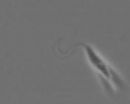(Press-News.org) Eating less meat would protect water resources in dry areas around the world, researchers at Aalto University in Finland have found.
Reducing the use of animal products can have a considerable impact on areas suffering scarce water resources, as meat production requires more water than other agricultural products.
Diet change together with other actions, such as reduction of food losses and waste, may tackle the future challenges of food security, states researcher Mika Jalava from Aalto University in Finland.
Growing population and climate change are likely to increase the pressure on already limited water resources and diet change has been suggested as one of the measures contributing to adequate food security for growing population.
The researchers assessed the impact of diet change on global water resources over four scenarios, where the meat consumption was gradually reduced while diet recommendations in terms of energy supply, proteins and fat were followed. The study published in Environmental Research Letters is the first global-scale analysis with a focus on changes in national diets and their impact on the blue and green water use of food consumption.
Food supply for growing population
Global population is expected to exceed 9 billion by 2050, adding over 2 billion mouths to be fed to the current population, according to the UN. By reducing the animal product contribution in the diet, global green water (rainwater) consumption decreases up to 21 % while for blue water (irrigation water) the reductions would be up to 14 %. In other words, by shifting to vegetarian diet we could secure adequate food supply for an additional 1.8 billion people without increasing the use of water resources. The potential savings are, however, distributed unevenly, and even more important, their potential alleviation on water scarcity varies widely from country to country.
Regional differences
The researchers at Aalto University found substantial regional differences in diet change potential to reduce water use. In Latin America, Europe, Central and Eastern Asia, and Sub-Saharan Africa, diet change reduces mainly green water use. In Finland, for example, turning into a meat free diet would decrease the daily green water use of a Finn over 530 litres but at the same time resulting nearly 50 litres increase in blue water use. In the Middle East region, North America, Australia and Oceania, also blue water use would decrease considerably. In South and Southeast Asia, on the other hand, diet change does not result in savings in water use, as in these regions the diet is already largely based on a minimal amount of products.
INFORMATION:
The research is just published in Environmental Research Letters.
(Full credits: M. Jalava, M. Kummu, M. Porkka, S. Siebert and O. Varis)
Image captions: shifting to a meat-free diet would secure adequate food supply for an additional 1.8 billion people without increasing the use of water resources.
Aalto University, Finland is a new multidisciplinary science and art community in the fields of science, economics, and art and design. The University is founded on Finnish strengths, and its goal is to develop as a unique entity to become one of the world's top universities. Aalto University's cornerstones are its strengths in education and research. At the new University, there are 20,000 basic degree and graduate students as well as a staff of 5,000 of which 380 are professors.
Diet change -- A solution to reduce water use?
Eating less meat would protect water resources in dry areas around the world, researchers at Aalto University in Finland have found
2014-08-04
ELSE PRESS RELEASES FROM THIS DATE:
Cell plasticity may provide clues to origin of aggressive type of breast cancer
2014-08-04
INDIANAPOLIS -- Healthy breast cells may be able to reinvent themselves -- some have the flexibility to change after they are mature -- which leads researchers to postulate that similarities exist between this occurrence and the origins of a particularly aggressive type of breast cancer.
A team of researchers, led by Candice A.M. Sauder, M.D., while a resident at the Indiana University Department of Surgery, reported online in BMC Cell Biology that healthy breast cells separated from their normal environment were able to transform into types of cells similar to those ...
Students cope well with healthier snacks
2014-08-04
Students do not mind buying healthier snacks from vending machines, according to research published in the International Journal of Food Safety, Nutrition and Public Health. The findings could have implications for campus health initiatives as well as vendor profits.
The common stereotype of the busy student is of someone who will grab a junk food snack between lectures and rarely chooses a decent, hot meal over a chance to share a beer or two with fellow students. If the stereotype is an obvious generalization, one point remains true, snacks from vending machines on ...
Diabetes: A duo helps better
2014-08-04
Various active substances in oral antidiabetic agents are frequently combined in the treatment of diabetes in order to achieve an effective reduction in the blood sugar. A new, very promising approach combines the substances metformin and SGLT2 inhibitors, the latter were just approved in 2012. Scientists headed by Dr. Susanne Neschen and Prof. Dr. Martin Hrabě de Angelis from the Helmholtz Zentrum München, in cooperation with Ludwig-Maximilians-Universität München and drug manufacturer Sanofi Aventis, have discovered how the two substances reinforce each other.
Medicinal ...
Drilling in the dark: Biological impacts of fracking still largely unknown
2014-08-04
MADISON, Wis. – As production of shale gas soars, the industry's effects on nature and wildlife remain largely unexplored, according to a study by a group of conservation biologists published in Frontiers in Ecology and the Environment on August 1.
The report emphasizes the need to determine the environmental impact of chemical contamination from spills, well-casing failure, and other accidents.
"We know very little about how shale gas production is affecting plants and wildlife," says author Sara Souther, a conservation fellow in the Department of Botany at the ...
New insights into why adolescents carry meningitis-causing bacteria
2014-08-04
University of York scientists have shed new light on why teenagers and young adults are particularly susceptible to meningitis and septicaemia.
The team from the University's Department of Biology has discovered a novel metabolic pathway in the bacterium Neisseria meningitidis that may explain why this age group is particularly at risk of infection.
The results of the research, which was supported by the Centre for Chronic Diseases and Disorders (C2D2), are reported in the journal Molecular Microbiology.
N. meningitidis is a major cause of meningitis and septicaemia, ...
Researchers find potential new predictor of stress-related illnesses
2014-08-04
SAN ANTONIO (Aug. 2, 2014) ― Scientists studying depression in teens have discovered that subtle changes in a gene can predict how the brain reacts to stress, which can cause such health issues as depression, post-traumatic stress disorder and obesity.
The research, published Aug. 2 in the journal Nature, focuses on two longitudinal studies led by Douglas E. Williamson, Ph.D., from The University of Texas Health Science Center at San Antonio, and Ahmad Hariri, Ph.D., from Duke University. Scientists from Columbia University and the University of Pittsburgh are ...
Key adjustment enables parasite shape-shifting
2014-08-04
VIDEO:
Researchers show that suppressing expression of a key protein causes major changes in the shape of T. brucei (shown here), the parasite that causes African sleeping sickness.
Click here for more information.
Crafty parasites frequently undergo dramatic shape changes during their life cycles that enable them to adapt to different living conditions and thrive. But these transformations might not be as difficult as they appear, according to a study in The Journal of Cell Biology.
African ...
It's not rocket science. Oh wait, it is
2014-08-04
WASHINGTON, August 4, 2014 — This week, Reactions is blasting off with an episode that's all about rockets. Featuring Doane College Postdoctoral Fellow Raychelle Burks, Ph.D., we examine the chemistry of solid and liquid propellants, orbital maneuvering and the "ride-able explosion" that is a rocket launch. You can "launch" the video at: https://www.youtube.com/watch?v=Yqiq2lQrqGI.
INFORMATION:
Subscribe to the series at Reactions YouTube, and follow us on Twitter @ACSreactions to be the first to see our latest videos.
The American Chemical Society is a nonprofit ...
NASA sees Tropical Storm Bertha leaving the Bahamas
2014-08-04
Tropical Storm Bertha took a "vacation" in the Bahamas on August 3 and NASA's Terra satellite captured an image of the storm that appeared be centered over "Crooked Island."
On August 2, before Bertha visited the Bahamas, the western half of the storm passed over Puerto Rico. A visible image captured by NASA's Terra satellite showed Bertha's clouds stretched from Puerto Rico east, over the British Virgin Islands. NOAA's National Weather Service office in San Juan, Puerto Rico reported 1.36 inches of rainfall from Bertha on August 2.
On August 3 at 15:35 UTC (11:35 a.m. ...
New information on transcranial ultrasound therapy
2014-08-04
A recent study completed at the University of Eastern Finland provides new information on the limitations and potential new directions for the future development of transcranial ultrasound therapy. Active research is taking place in the field of transcranial ultrasound therapy, which in the future can potentially be applied to the treatment of brain tumours and targeted drug delivery. The therapy modality has already been successfully applied to the treatment of neuropathic pain disorder and essential tremors. The benefits of transcranial ultrasound therapy include minimal ...
LAST 30 PRESS RELEASES:
Scientists show how to predict world’s deadly scorpion hotspots
ASU researchers to lead AAAS panel on water insecurity in the United States
ASU professor Anne Stone to present at AAAS Conference in Phoenix on ancient origins of modern disease
Proposals for exploring viruses and skin as the next experimental quantum frontiers share US$30,000 science award
ASU researchers showcase scalable tech solutions for older adults living alone with cognitive decline at AAAS 2026
Scientists identify smooth regional trends in fruit fly survival strategies
Antipathy toward snakes? Your parents likely talked you into that at an early age
Sylvester Cancer Tip Sheet for Feb. 2026
Online exposure to medical misinformation concentrated among older adults
Telehealth improves access to genetic services for adult survivors of childhood cancers
Outdated mortality benchmarks risk missing early signs of famine and delay recognizing mass starvation
Newly discovered bacterium converts carbon dioxide into chemicals using electricity
Flipping and reversing mini-proteins could improve disease treatment
Scientists reveal major hidden source of atmospheric nitrogen pollution in fragile lake basin
Biochar emerges as a powerful tool for soil carbon neutrality and climate mitigation
Tiny cell messengers show big promise for safer protein and gene delivery
AMS releases statement regarding the decision to rescind EPA’s 2009 Endangerment Finding
Parents’ alcohol and drug use influences their children’s consumption, research shows
Modular assembly of chiral nitrogen-bridged rings achieved by palladium-catalyzed diastereoselective and enantioselective cascade cyclization reactions
Promoting civic engagement
AMS Science Preview: Hurricane slowdown, school snow days
Deforestation in the Amazon raises the surface temperature by 3 °C during the dry season
Model more accurately maps the impact of frost on corn crops
How did humans develop sharp vision? Lab-grown retinas show likely answer
Sour grapes? Taste, experience of sour foods depends on individual consumer
At AAAS, professor Krystal Tsosie argues the future of science must be Indigenous-led
From the lab to the living room: Decoding Parkinson’s patients movements in the real world
Research advances in porous materials, as highlighted in the 2025 Nobel Prize in Chemistry
Sally C. Morton, executive vice president of ASU Knowledge Enterprise, presents a bold and practical framework for moving research from discovery to real-world impact
Biochemical parameters in patients with diabetic nephropathy versus individuals with diabetes alone, non-diabetic nephropathy, and healthy controls
[Press-News.org] Diet change -- A solution to reduce water use?Eating less meat would protect water resources in dry areas around the world, researchers at Aalto University in Finland have found




